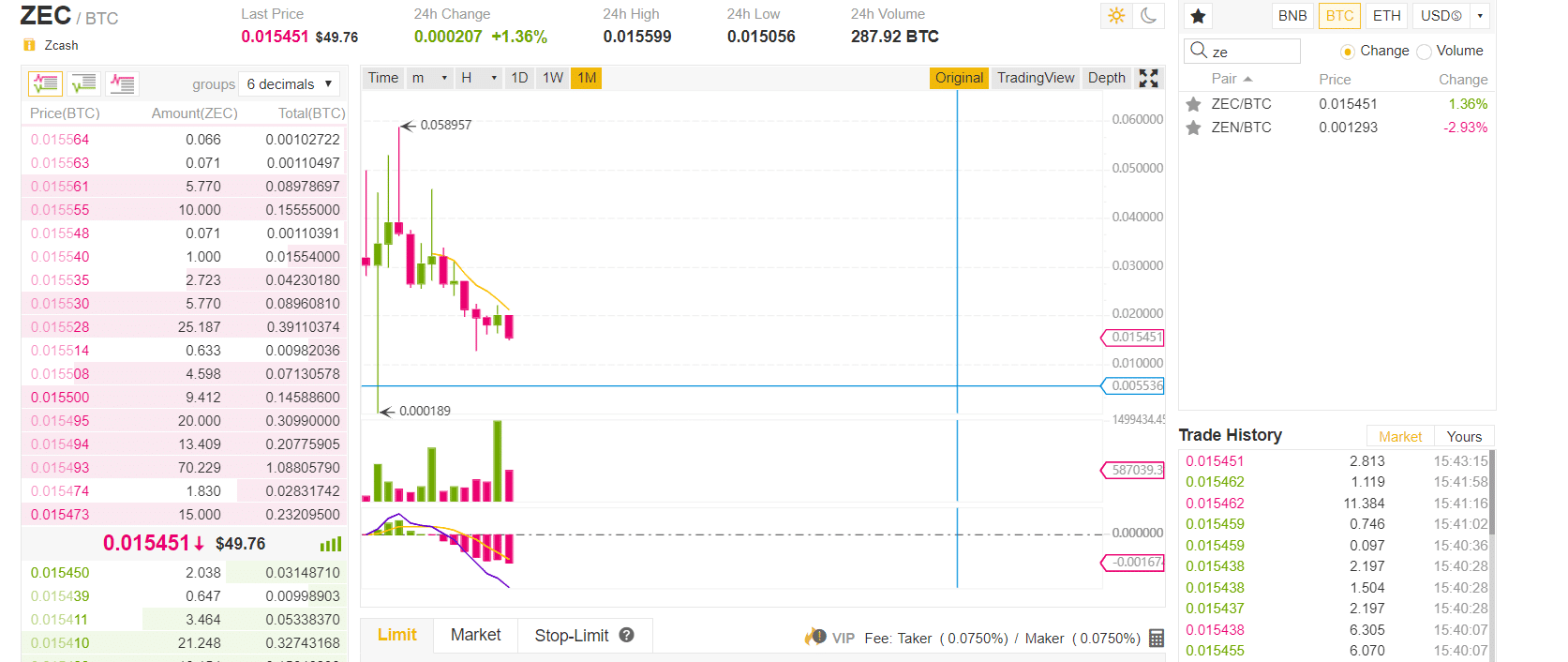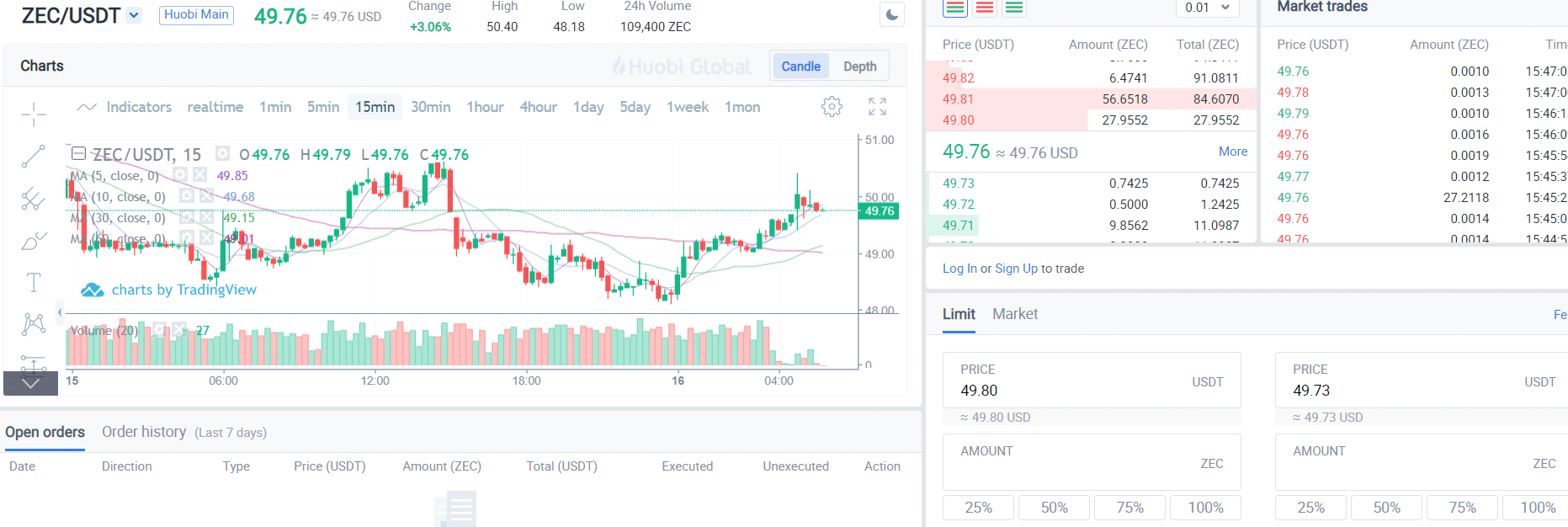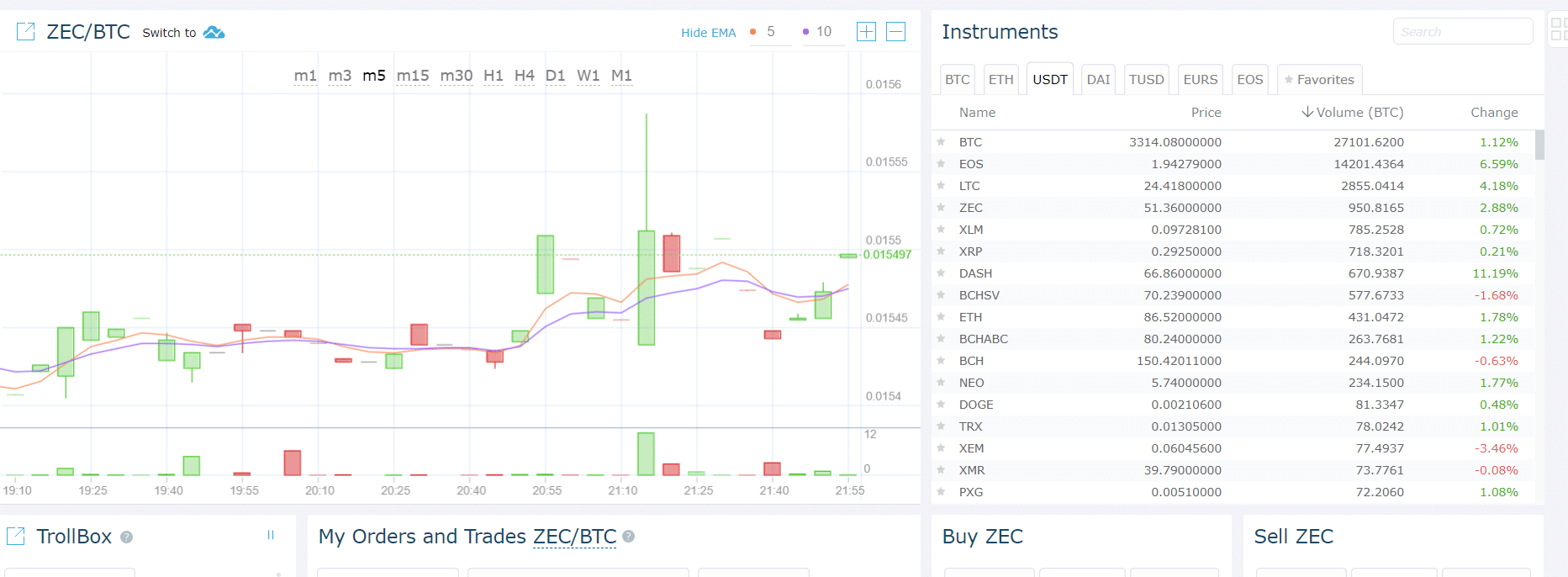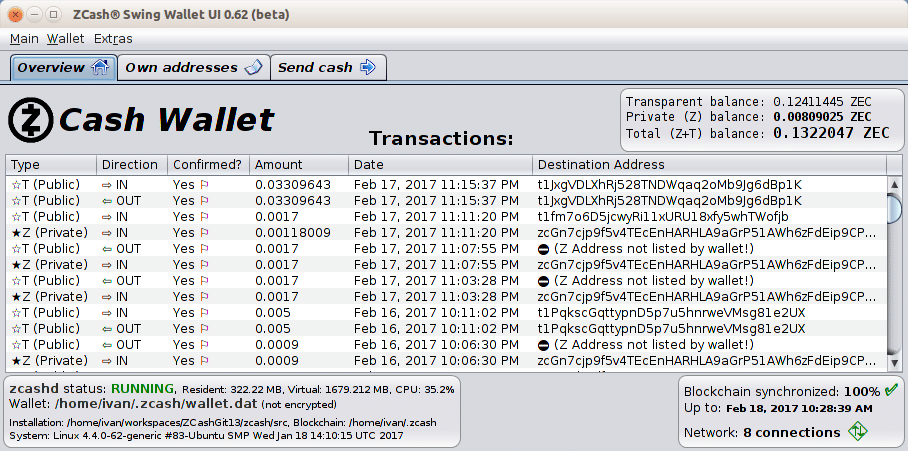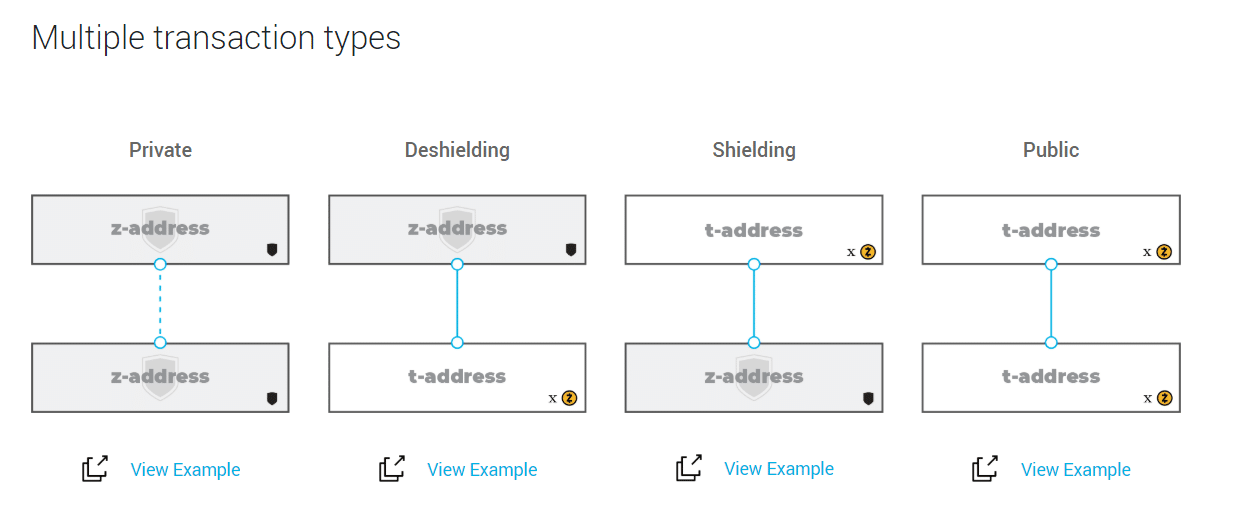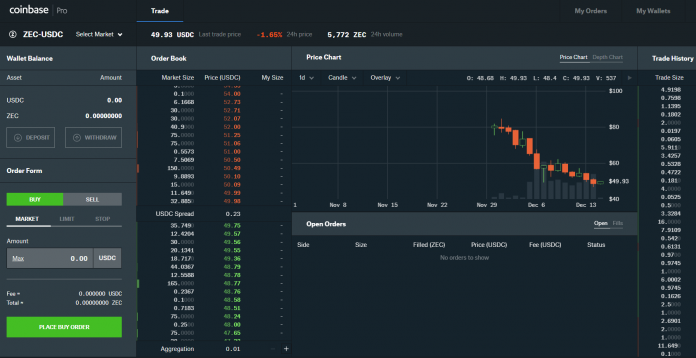
Zcash (ZEC) is one of the most well-known privacy coins in crypto. With technical implementations like zk-SNARKS, this cryptocurrency has consistently remained in the conversations for being one of the most dominating privacy coins on the market. It has maintained a top 30 market cap ranking since 2016.
In this guide, we’ll explain how to buy Zcash from various exchanges and discuss Zcash wallet options.
Best Exchanges
Looking at the ZEC trade volume stats, there are hundreds of trading pair options across a variety of exchanges. Coinbase Pro, Biance, Huobi, OKEx, HitBTC, and several more support ZEC trading. Here are a few advantages and disadvantages of these top options.
Coinbase Pro (GDAX)
Advantages: Coinbase Pro (also known as GDAX) offers users much lower fees than Coinbase.com. For newer traders, it might take longer to understand the trading interface, but this isn’t too steep of a learning curve. Most importantly, you can buy and sell Zcash with the USDC stablecoin. Then, you can trade USDC for USD. Essentially, you can trade ZEC for fiat with minimal steps. Plus, you can easily send and receive deposits via ACH, wire transfer, or even Paypal.
Disadvantages: Unlike other cryptocurrencies (i.e. BTC, ETH, ZRX) on this exchange, there’s still no direct ZEC-USD trading pairs as of December 14, 2018. Fees at 0.3 percent on makers and takers on GDAX is relatively high compared to other exchanges.
Binance
Advantages: As the globe’s top crypto-to-crypto exchange by trading volume, Binance makes it simple to trade ZEC and has a good track record of keeping funds secure. Binance also has a mobile app as well as great community trust. This exchange will soon have its own blockchain and decentralized exchange. Trading fees are relatively low, at 0.1 percent.
Disadvantages: As a crypto-to-crypto only exchange, Binance doesn’t offer fiat deposits, trades, or withdrawals.
Huobi
Advantages: Huobi has vastly better customer support reviews than almost every other exchange. Huobi also provides a margin trading option, something that many of its competitors do not offer.
Disadvantages: Maker and taker fees on Huobi are set at 0.2 percent. Overall, this isn’t too high. Still, other exchanges have set ZEC trading fees at 0.1 percent or lower. In the past, the exchange has had to temporarily shut down ZEC trading. For example, on June 25, 2018, the exchange did this in anticipation of a ZEC hard fork.
OKEx
Advantages: Fees on OKEx are lower than most top exchanges. Maker fees range from 0.02 to 0.15 percent. Taker fees range from 0.05 to 0.2 percent. OKEx supports fiat currencies: USD and CNY.
Disadvantages: Similar to Huobi, OKEx had to suspend trading during the June 2018 ZEC hard fork. According to the official announcement, “Please do NOT deposit any ZEC into existing OKEx addresses during the Hard Fork. Otherwise, the deposit will fail and funds will be non-retrievable.” While it’s good to have a warning, it’s possible that some users who didn’t read this could have just sent ZEC funds into the abyss, never to be recovered.
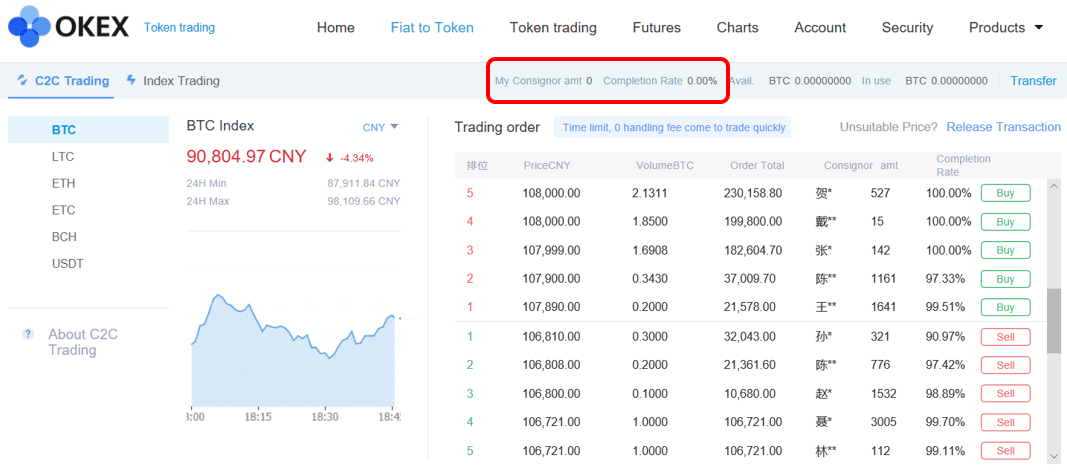
The combination of low fees and fiat trading makes OKEx a top contender for ZEC trading.
HitBTC
Advantages: HitBTC is more beginner-friendly than most exchanges. If you want to buy a lot of ZEC, the withdrawal fee will be the same whether you’re withdrawing 1 ZEC, 100 ZEC, etc.
Disadvantages: Although there are lots of altcoins on the exchange, not too many have direct trading pairs with ZEC. Withdrawal fees on HitBTC tend to be more expensive than other exchanges if you’re withdrawing a smaller amount of ZEC.
A Plethora of Other Exchanges and Trading Pairs
If you don’t want to use one of the options listed above, you don’t have to worry. There are plenty of other exchanges that offer ZEC trading.
In fact, lesser-known exchanges like Lbank, Bit-Z, Sistemkoin, and BitOnBay consistently rank high in terms of trade volume for ZEC. This generally means that they have high liquidity, which simplifies the trading process and reduces transaction completion times.
Yes, you’ll likely find that ETH and BTC make up the majority of ZEC’s crypto trading pairs. However, there are other choices to consider. For example, Cryptopia offers ZEC/DOGE trading. Waves Platform offers ZEC/LTC, ZEC/DASH, and many more. Gemini provides ZEC/BCH and ZEC/LTC.
In addition, some exchanges allow you to directly trade with fiat, and not just USD and EUR. Some examples include PLN, TRY, RUB, and UAH.
Zcash Wallet Options
If you’re considering buying ZEC from an exchange, you’re probably wondering which Zcash wallet options exist.
The good news is that Zcash is supported by both Trezor and Nano, two of the top cryptocurrency hardware wallets on the market.
Jaxx supports ZEC for desktop, mobile, and web. Cryptonator and Freewallet are solid options for mobile and web. Finally, Zcash has its own native desktop wallet for storing ZEC.
Frequently Asked Questions
Do I have to buy an entire unit of Zcash (ZEC)?
No, this is not required. Just like Bitcoin, Zcash is divisible up to eight decimal places.
If I buy Zcash on an exchange is the transaction really private?
This depends upon the exchange. For instance, some exchanges require every user to first fill out KYC documentation. Other exchanges do not have this requirement. Assuming that there is no KYC, the Zcash team has said that achieving full privacy when using an exchange requires a combination of TOR and VPNs to obfuscate a user’s IP address. With Zcash as well as other privacy coins, privacy is still a relative term.
How Does Zcash Compare to Other Privacy Coins?
Zcash has historically been the second or third ranked privacy coin in terms of market cap. Monero (XMR) and Dash (DASH) are also top options.
In terms of privacy, each of these coins utilizes different technologies to accomplish similar goals. Zcash has an option to make transactions and accounts public with “t” addresses or private with “z” addresses. Monero always remains private. Meanwhile, accounts are always viewable with Dash; however, transactions are obfuscated with a technology called CoinJoin.
As of December 2018, the number of possible transactions per second is as follows: Monero (1,700), Dash (10), and Zcash (6).
The post How to Buy Zcash (ZEC) | A Beginner’s Guide appeared first on CoinCentral.

Coincentral.com is author of this content, TheBitcoinNews.com is is not responsible for the content of external sites.
Our Social Networks: Facebook Instagram Pinterest Reddit Telegram Twitter Youtube


